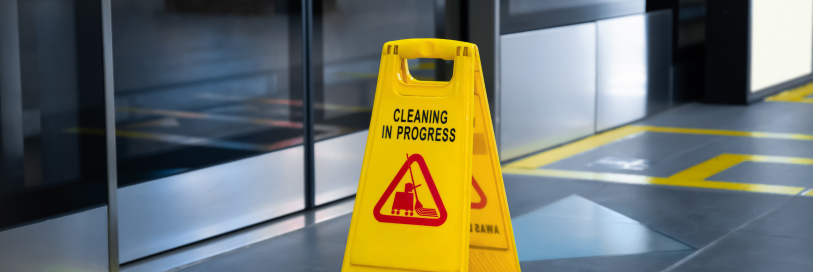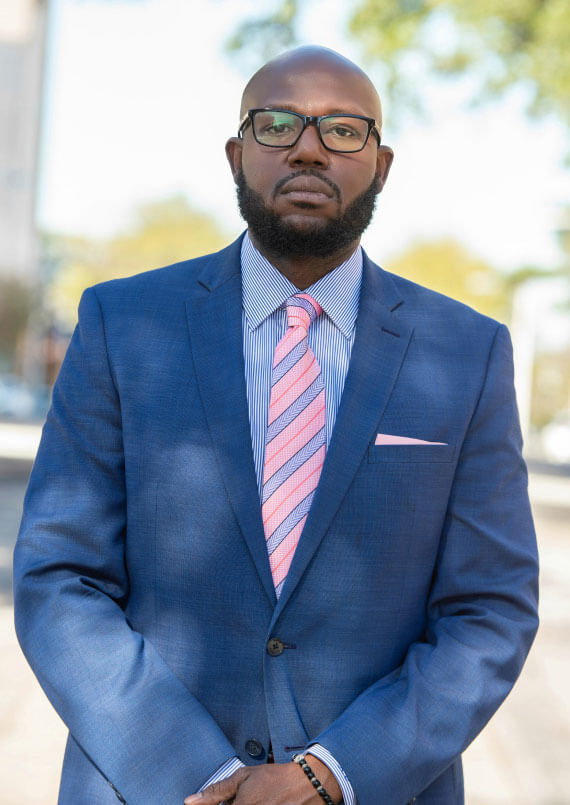Slip and Fall Lawyer in Columbia, SC

A slip or trip and fall can result in far worse injuries than a few bumps and bruises. Depending on the circumstances, victims could be left with debilitating injuries that require extensive care. Even after they have finished treatment, they may still suffer from permanent impairments or disabilities.
It is important to understand that many victims of slip or trip and fall injuries are empowered to hold responsible parties legally and financially liable for the harm they’ve caused. If you have recently fallen because of hazardous conditions on someone else’s property, the property owner could owe you compensation for your losses. Allow the experienced Columbia slip-and-fall attorney at the Law Offices of S. Chris Davis to help you demand this compensation.
Attorney Chris Davis is committed to providing the firm’s clients with competent, professional, and, above all, compassionate legal representation when they need it the most. Our firm’s success at the negotiating table and in the courtroom, coupled with our excellent customer service, is why we’ve received numerous 5-star reviews on Google, why many of our clients are recommended to us by their friends and family, and are some of the reasons why Chris Davis has been named to the “Top 40 Under 40” list by the National Trial Lawyers Association for several years in a row.
Don’t wait to demand the compensation and justice you deserve after an accident that wasn’t your fault. Contact our firm today to speak with a slip-and-fall accident lawyer in Columbia, SC, and tell Chris Davis about your experience during a free, no-obligation consultation.
Common Causes and Types of Slip and Fall Accidents
Our firm represents individuals who have fallen and been injured due to a variety of different circumstances. Some of the most common causes of slip-and-fall and trip-and-fall accidents that we’ve encountered include:
- Recently mopped, cleaned, or waxed floors
- Spilled foods, liquids, and oils/greases
- Tracked-in rain, water, mud, or plant debris
- Water or ice buildup
- Fluid leaks from pipes, hoses, or refrigeration equipment
- Torn or loose carpeting or rugs
- Broken or loose hardwood or tile flooring
- Broken or missing steps or handrails
- Transitions between flooring surfaces, such as stepping from carpet to tile or glass
- Uneven flooring surfaces, such as half-steps or broken/raised pavement or pavers
- Potholes
- Lack of water-absorbing or anti-skid mats
- Malfunctioning elevators or escalators
- Poor lighting
- Clutter or trash on the floor
- Wires or cords strewn across walkways
- Open cabinet doors or drawers or awkwardly placed furniture
Who Can Be Held Responsible for a Slip and Fall Accident in Columbia?
A property owner can generally be held liable for a slip and fall if it was caused by a dangerous or defective condition of the property that was either caused by the property owner or that the owner had a legal duty to fix or warn visitors of. Most of the time, it must be proven that the property owner either knew about the hazardous condition or that they should have known about it.
Depending on the status of the property, various parties may be held liable for a victim’s injuries. Some of the individuals regularly named as defendants in slip and fall lawsuits include:
- A property owner
- A business owner or operator, if the accident occurs on commercial property leased by the business that the business has a contractual responsibility to maintain
- A residential tenant, if a slip and fall accident occurs within the tenant’s unit or premises within the tenant’s exclusive control
- Third-party maintenance contractors, including property management companies, janitorial services contractors, or landscapers
Compensation Available After a Slip and Fall Accident
You could be entitled to compensation for a wide range of losses, depending on the circumstances of your slip-and-fall accident and the nature of the injuries you suffered as a result. This compensation can be broken down into the following categories.
Economic damages
Economic damages are intended to compensate a slip-and-fall victim for financial losses that they incur because of the accident. Compensation for economic damages can be calculated and future damages estimated through bills, receipts, invoices, pay stubs, and tax returns. Examples of economic damages available in slip and fall accident cases include:
- Past, current, and future medical expenses
- Past, current, and future lost wages
- Lost earning capacity caused by temporary or permanent disability
- Rehabilitative services, including physical and occupational therapy
- At-home nursing care
- Replacement services, including household services that you cannot perform
- Medical devices, such as crutches, walkers, and wheelchairs, as well as home renovations to accommodate permanent disability
Non-economic damages
Non-economic damages are intended to compensate a slip-and-fall accident victim for personal, intangible losses suffered due to their injuries – losses that cannot be quantified by an objective dollars-and-cents figure. Unlike economic damages that can be calculated after assessing bills, invoices, receipts, and pay stubs, determining non-economic damages is a more subjective process. Examples of non-economic compensation include:
- Pain and suffering
- Mental anguish
- Loss of companionship
- Loss of consortium
- Loss of reputation
- Loss of a limb
- Disfigurement
- Scarring
- Loss of enjoyment of life and activities
These non-economic damages are typically calculated in one of two ways:
- The Multiplier Method – The amount assessed as economic damages is multiplied by a number between 1.5 and 5, depending on the severity of the losses the victim suffered.
- The Per Diem Method – The estimated daily cost of the slip and fall-related losses is multiplied by the number of days that the victim is expected to suffer their effects to arrive at a figure for non-economic damages.



















